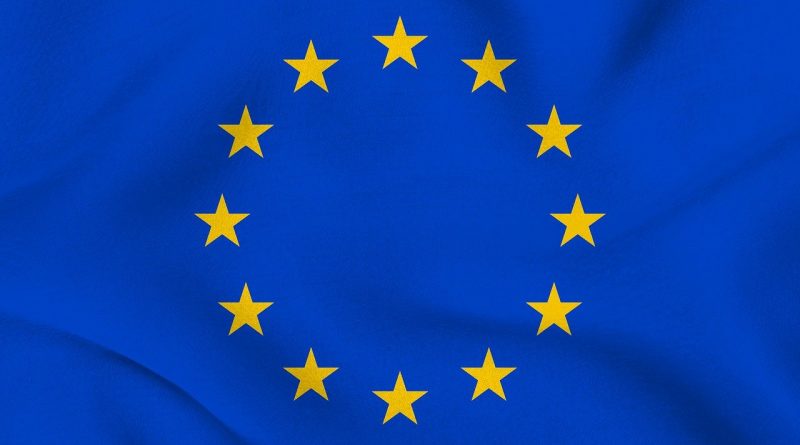European Union starts COVID-19 vaccination program
European Union nations, including France, Germany, Italy, Austria, the Czech Republic, Bulgaria, Greece, Latvia, Portugal and Spain have commenced mass vaccinations today, starting with the healthcare professionals, as a part of the global attempt to bring an end to the COVID 19 pandemic. Vaccinations have also begun on the old continent in countries outside the EU, including the UK, Switzerland and Serbia which is important to solve the global health crisis. European countries have recorded more than 16 million infections and 336,000 deaths to date, but the start of the vaccination program brings a message of unity and hope.
A message of hope and unity
The mass vaccinations have been launched after the clearance of the BioNTech-Pfizer jab by the European Medicines Agency (EMA) on the 21st December. The first shipments of the COVID-19 vaccines arrived late on Friday and early Saturday across the EU member states. Every member country will take the initiative on how to execute the rollout, and on Saturday, three member states, namely Germany, Hungary and Slovakia, began vaccinations a day early. Whilst these countries started vaccination earlier than planned, the coordinated vaccine rollout for the 27-nation bloc was planned to assert a symbolic message of unity and hope for the continent getting the upper hand on the health crisis.
The President of the European Commission, Ursula von der Leyen tweeted:
101-year old woman becomes first to receive the vaccine in Berlin
Germany reported mobile teams were on their way to distribute the vaccine to the elderly living in nursing homes, which were first in line to receive the vaccine on Sunday. Sports halls and conference centers emptied by lockdown policies would become venues for mass inoculations, in addition to hospitals and nursing homes. With a population of 83 million, Germany has reportedly set up more than 400 vaccination centres, including at venues such as Berlin’s former Tegel and Tempelhof airports and the Hamburg Trade Fair Hall.
Berlin’s first COVID-19 vaccination was received by a 101-year-old woman which survived two historic pandemics a century apart. It is planned for the vaccinations to be free and not mandatory but accessible to everyone from mid-2021, when the jabs for the priority groups are expected to be completed.
France commences mass vaccination program as new strain of COVID-19 is detected in the country
On Saturday, France, received the first shipment of the two-dose Pfizer vaccine. French authorities considered launching the administration of the first vaccine doses in the greater Paris area and in the Burgundy-Franche-Comte region. Only hours before the first doses arrived in the country, the French health ministry confirmed late Friday that it had detected its first case of the new COVID-19 strain in a citizen returned from Great Britain. A positive announcement was made yesterday when the French health authorities reported 3,093 new COVID infections over the past 24 hours on Saturday, a huge decline from the 20,000+ figure recorded over the two days before Christmas Day.
Italian Health Minister asks people to continue exercising caution
In Italy, meanwhile, in city squares across the country, temporary solar-powered healthcare pavilions are expected to spring up, built to look like five-petalled primrose flowers, an indicator of spring and better times to come. The Italian government has ordered 200 million doses that would initially be distributed and administered at 21 centers throughout the country.
Speaking outside a hospital Italian Health Minister Roberto Speranza said:
“It’s a beautiful day, but we still need to exercise caution … this vaccine is the true path to close out this difficult season.”
In his Christmas message from the Vatican, Pope Francis asked nations to share the vaccines and urged leaders from politics and beyond to find a solution “especially the most vulnerable and most in need”.
Logistics challenges of the ultra low storage temperature requirement of the Pfizer-BioNTech vaccine
In Spain, doses were distributed by air to its territory on the islands and to the Ceuta and Melilla enclaves of North Africa. Portugal is setting up independent cold storage systems for its Azores and Madeira archipelagos in the Atlantic. There are significant logistics challenges for these warm countries and in general across the continent in the delivery of the Pfizer-BioNTech vaccine, as the vaccine uses a novel mRNA platform and must be held at ultra low temperatures of about -80 degrees Celsius (-112 ° F). Nevertheless, its roll out allows the EU to gain a sense of stability in a dynamic lifesaving project after the bloc encountered difficulty in managing the dissemination of the virus.
UK on the brink of AstraZeneca-Oxford University vaccine approval and rollout
The United Kingdom, started its mass vaccination on December 8, with the first person in the world to be given the Pfizer-BioNTech jab at 06:31 GMT being 90-year old grandmother Margaret Keenan. The UK, which was the first European government to authorize the Pfizer-BioNTech vaccine, is now on the brink of approving the COVID-19 vaccine developed by Oxford University and the British-Swedish pharmaceutical company AstraZeneca, as planned by ministers and announced by the Sunday Telegraph, with a rollout that could begin in early January.
Recommended Companies
Ad
More Headlines






